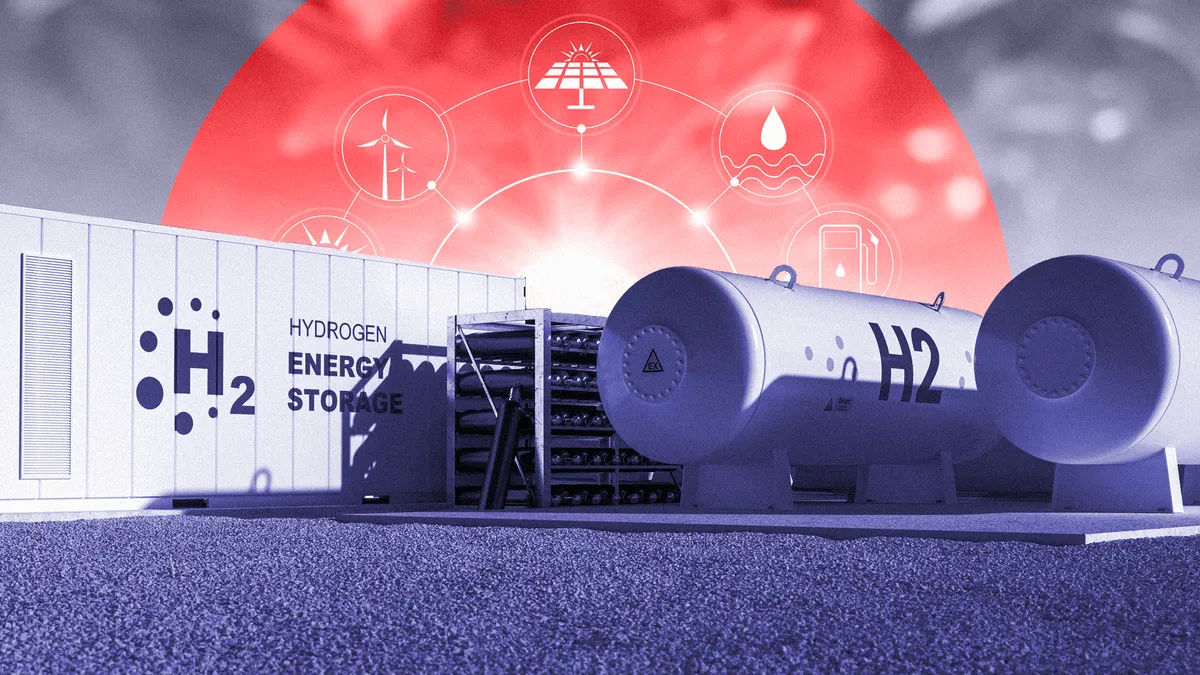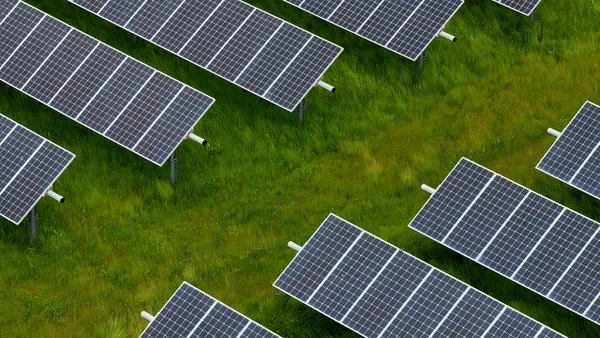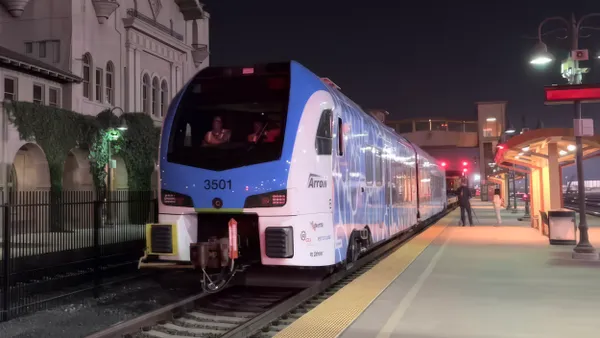Dive Brief:
-
Air Liquide opened a new liquid hydrogen production facility and logistics center in Las Vegas last week, aiming to capitalize on emerging demand for liquid hydrogen as a fuel in the mobility sector.
-
Hydrogen is gaining traction as a fuel within the shipping and logistics arena because it does not require downtime for charging like electric-powered vehicles. Less downtime means a company like Amazon doesn’t need to buy as many forklifts to move products around its warehouses, according to David Edwards, director and advocate for hydrogen energy at Air Liquide.
-
While Air Liquide's next hydrogen project has yet to be finalized, the company aims to be a leader in multiple potential markets in which they believe hydrogen will have future applications, including energy. “What success will look like is when we open plants like this and it’s no big deal,” Edwards said.
Dive Insight:
Air Liquide is moving full steam ahead into its vision for a future hydrogen-based economy with the opening of its new 30-ton liquid hydrogen production facility and logistics center in North Las Vegas.
The new plant, which opened officially on May 24, is capable of producing enough hydrogen to fuel 40,000 vehicles, using steam methane reforming, which derives hydrogen from natural gas. Although the new facility does not make use of carbon capture technologies, Air Liquide intends to source natural gas for the plant from renewable sources such as landfills, Edwards said. Because the methane from these sources would normally be emitted into the atmosphere, using renewable natural gas to create hydrogen will reduce the carbon intensity of the final product relative to conventional fossil fuels like diesel, he said.
The plant will also be powered by 100% clean energy, Edwards said, and use less water — a scarce resource in the Las Vegas area — than an electrolyzer, which would make hydrogen by using electricity to split water into its component parts of hydrogen and oxygen.
Air Liquide initially began planning the facility in 2017, before the recent national conversation around hydrogen began in earnest, Edwards said. It was apparent as early as 2015 that growing interest in hydrogen in California and in the warehousing sector nationwide would eventually result in a shortage of hydrogen fuel unless the company built a new facility, he said. The company selected Las Vegas as the site for the project on account of its proximity to California’s hydrogen market, where Air Liquide has been involved in building hydrogen fueling stations, and because interested city officials helped to expedite the project so it could be built quickly.
“The other thing that goes into picking a location is making sure you have available power, feedstock, access to transportation and favorable potential for the future,” Edwards said. “The Las Vegas area represents potential for growth with all of the potential entertainment venues, and growth happening on the northwest side is a good opportunity from the warehousing and trucking markets.”
While the initial output from the Las Vegas plant could be sold to diverse customers in industries such as metals and specialty chemicals, the ultimate target market for the plant is mobility, Edwards said. This will include the 13,000 hydrogen-fueled cars already on the roads in California, as well as specialty applications such as forklifts within warehouses or even at ports within California.
In addition, Air Liquide is currently demonstrating some of the first hydrogen-fueled tractor-trailers, but doesn't expect those to enter broader markets for three to five years. Eventually, the company anticipates applications in offroad, rail, air and sea vehicles, Edwards said.
“We expect that over the course of the next few years, that [demand from the logisitics sector] will become more and more dominant as a baseline for this plant,” Edwards said.
Today about 90% of the warehouse trucks and forklifts made by KION, a manufacturer of materials handling and logistics equipment, are powered using lithium-ion battery technology, according to a spokesman for the company. However, a statement from the company noted that hydrogen fuel is increasingly popular. KION subsidiary STILL began offering hydrogen-fueled vehicles in 2003, and has provided more than 100 hydrogen fuel-cell trucks to French retail giant Carrefour for use in their warehouse facilities.
"Nevertheless, we don’t see the fuel cell and battery technologies in competition, in fact, we believe that combining fuel cells and lithium-ion technology is the future," the statement said.
Air Liquide has yet to decide where it will build its next hydrogen facility, Edwards said. But the expanding vision for hydrogen’s role in a green economy means plans for far larger expansions are on the company’s radar.
“The hydrogen ecosystem in California and in the West is changing on a daily basis, with things like the potential for hydrogen hubs [funded by] the infrastructure bill and other opportunities,” Edwards said. “It’s difficult to predict where we will fit in those projects, but as a hydrogen ecosystem builds, it will be across mobility, industry and energy generation — and we intend to be players.”













